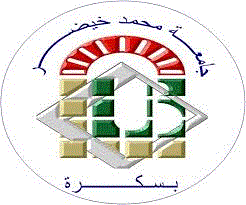| Titre : | أثر السياسة المالية علي المؤشرات الداخلية للاستقرار الاقتصلدي-النمو الاقتصادي التضخم والبطالة : دراسة تحليلية قياسية لحالة الجزائر خلال الفترة 1992-2018 |
| Auteurs : | كفية قسميوري, Auteur ; خنشور جمال, Directeur de thèse |
| Support: | Thése doctorat |
| Editeur : | Biskra [Algerie] : Université Mohamed Khider, 2021 |
| Format : | a4 |
| Langues: | Arabe |
| Mots-clés: | نفاق عام؛ جباية عادية؛ جباية بترولية؛ عجز الموازنة العامة؛ الناتج المحلي الإجمالي Public expenditure ; Ordinary taxation ; Petroleum taxation ; Public budget deficit ; Gross domestic product. |
| Résumé : |
باعتبار هذه الدراسة تندرج في إطار الإقتصاد الكلي المالي، فقد جاءت لتعالج إشكالية مدى تأثير أدوات السياسة المالية على المؤشرات الداخلية للاستقرار الاقتصادي بالجزائر، حيث أنه في ظل النظريات الاقتصادية والدراسات التطبيقية السابقة و المتعلقة بالسياسة المالية التي احتلت فيها أدواتها مكانة متباينة في تلك النماذج، والتي اختلفت كل منها عن الأخرى في طريقة معالجتها لدور السياسة المالية وآثارها المختلفة على المؤشرات الاقتصادية الكلية؛ هدفت هذه الدراسة إلى إبراز طبيعة علاقة أدوات هذه السياسة ب النمو الاقتصادي والتضخم والبطالة، أي عالقة النفاق العام بشقيه )الجاري والاستثماري(، والإيرادات العامة )الجباية العادية والجباية البترولية( وكذا رصيد الموازنة العامة )عجز الموازنة( بتلك المؤشرات، ثم تحليلها وقياس أثرها بالاقتصاد الوطني في الفترة الممتدة من 1992إلى 2018؛ فخلصت الدراسة إلى أن كافة متغيرات النموذج القياسي الذي تم بناءه متكاملة من الدرجة الأولى، حيث أظهر نموذج تصحيح الخطأ ECM نتائج متباينة إذ كشف أن هناك علاقة ديناميكية وتوازنية قصيرة وطويلة الأجل بين أدوات السياسة المالية والنمو الاقتصادي في الجزائر. بعض أدوات السياسة المالية ذات تأثير معنوي موجب على التضخم في الجزائر بالأجل القصير، لكن في مجملها التي تؤثر عليه في الأجل الطويل، وهذا ألن التضخم في الجزائر له أسباب مختلفة، أد وات السياسة المالية التي تؤثر على البطالة في الجزائر في الأجل الطويل. This study is included in the total financial economy framework (economietotalefinanciére). It dealt with the impact of financial policy tools on Algeria’s internal indicators of the economic stability. That is, in the light of past economic theories and applied studies on financial policy in which their materials have occupied diverse positions in these samples. These materials differed from each other in the way they dealt with the role of financial policy, and its various effects on macro-economic indicators. This study aimed at highlighting the nature of the relationship of this policy’s components to economic growth, inflation and unemployment. i.e. the relationship of public expenditure with its two parts ( current and investmental), public revenues (ordinary and petroleum taxation) as well as the balance of the public budget (budget deficit) with these indicators. Then, analysing and measuring their impact on the national economy between 1992- 2018. The study concluded that all the variables of the given sample that was constructed are integrated in the first degree. The Error Correction Model (ECM) revealed various results: There is a dynamic and balanced, short and long-term relationship between economic growth and financial policy materials, Some financial policy tools have a positive moral effect on inflation in Algeria in the short term. But, in general, they don’t affect it in the long term, this is because inflation in Algeria has different causes, Financial policy tools do not affect unemployment in Algeria in the long term |
Exemplaires
| Cote | Support | Localisation | Disponibilité |
|---|---|---|---|
| aucun exemplaire | |||
Consulter en ligne (1)
consulter sur e-print URL |


